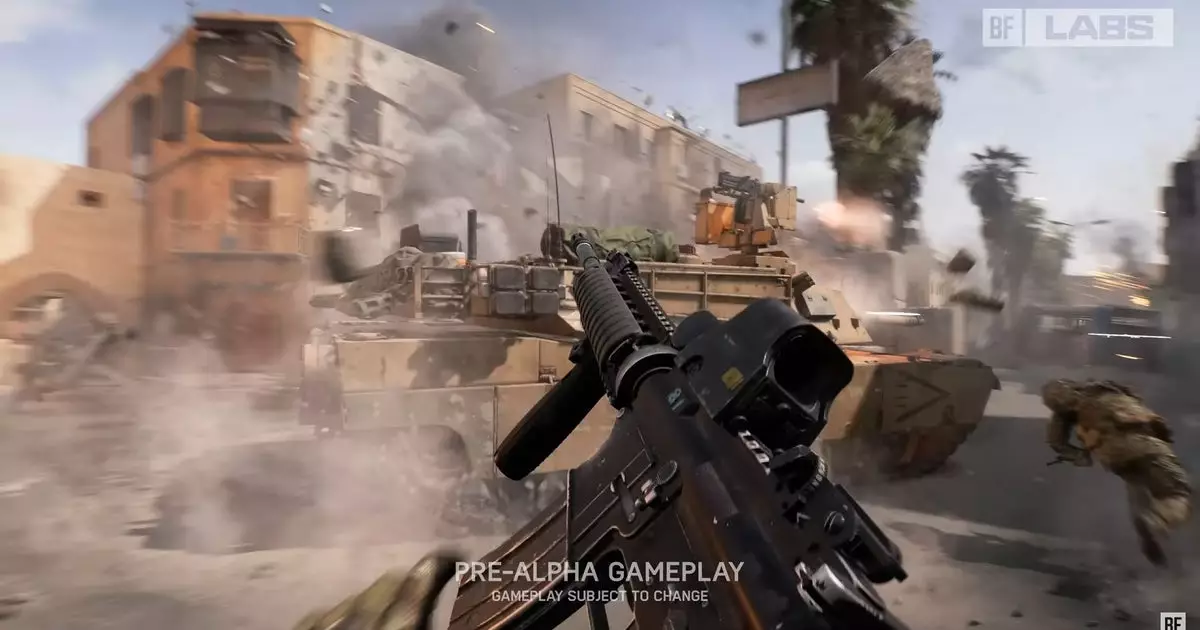The anticipation surrounding the next installment in the Battlefield franchise has reached a fever pitch, fueled by a recent promotional video that offered a glimpse into what players can expect. While the visuals boast a familiar chaos—think exploding buildings, infantry under fire, and heavy machinery dominating the battlefield—the substance behind this showcase raises questions about innovation and the overall direction of the series.
From the outset, the trailer establishes a signature Battlefield aesthetic: destruction and mayhem. Viewers witness soldiers navigating through debris as rockets obliterate structures, a scenario that has become a cornerstone of the franchise. However, while the producers speak of “leveling up” the “core experience,” one cannot help but feel that the essence of Battlefield has remained stagnant. The gameplay mechanics demonstrated—rocket explosions, tanks cruising through combat zones—highlight a continuity more than a reinvention. There’s a palpable sense that the developers are leaning heavily on established conventions rather than taking bold steps forward.
The promotional video simultaneously spotlighted a collaborative effort involving notable studios such as DICE, Criterion, Motive, and Ripple Effect. This indicates a push for collective creativity and expertise, yet it also raises skepticism. Why such reliance on multiple studios? Does this suggest that the product needs bolstered input to compensate for creative gaps? Moreover, the absence of Ridgeline Games—originally touted as a creative contributor—adds an uncomfortable layer; it raises eyebrows about stability within the team and the implications of closed doors in game development.
Another crucial aspect to scrutinize is the introduction of “Battlefield Labs,” marketed as a program enabling fans to engage in playtesting the game. While on the surface, this appears to be an inclusive approach, it also conjures thoughts of barebones participation: signing an NDA in exchange for a fleeting chance to interact with incomplete gameplay. This raises concerns regarding the genuine feedback cycle and whether player input will shape the final outcome or simply serve as a marketing tool to generate buzz prior to the game’s release.
While the promotional video succeeds in igniting excitement for the next Battlefield title, there’s a palpable tension between legacy and innovation. The developers may boast an impressive production team, but that does not automatically translate into an exciting transformation of the gameplay experience. The real test lies not in flashy trailers or eloquent producer narratives, but in whether this installment can deliver fresh and engaging mechanics that resonate with both loyal fans and newcomers in an ever-evolving gaming landscape. As anticipation swells, one can’t help but wonder if the magic that once defined Battlefield will return or if it will remain a relic of glory days past.


Leave a Reply